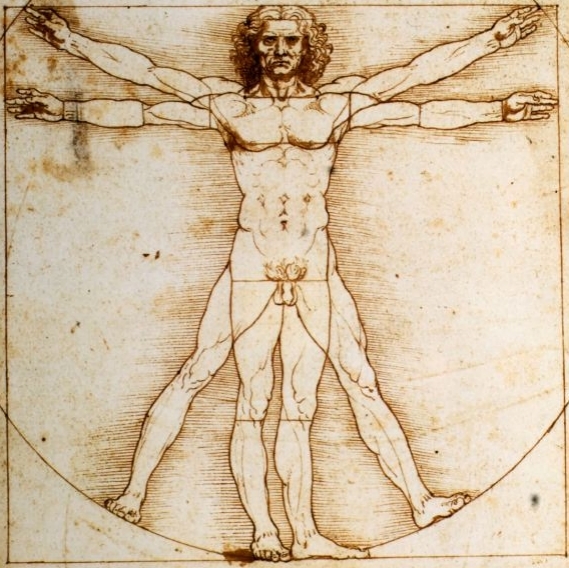To attain a total psychological integration is one of the greatest longings in revolutionary psychology.
If the “I” was a unity, then the problem of psychological integration would be resolved with great ease; regrettably—to the disgrace of this world—the “I” exists within every person in a pluralized manner.
The pluralized “I” is the fundamental cause of all our intimate contradictions.
If, in front of a full-length mirror, we could see ourselves psychologically, that is, if we could see in the mirror all of our intimate psychological contradictions, then we would arrive at the embarrassing conclusion that we still do not have true individuality.
The human organism is a wonderful machine controlled by the pluralized “I,” which revolutionary psychology studies in depth.
“I am going to read the newspaper,” says an intellectual “I”; “I want to go to a party,” exclaims an emotional “I”; “to hell with the party,” grumbles an “I” of movement, “it is better if I go for a walk”; “I don’t want to go for a walk,” shouts an “I” of instinctive conservation, “I am hungry and I am going to eat.”

Each one of these little “I”s—which constitute the pluralized ego—wants to command, wants to be the boss, the leader.
In light of revolutionary psychology we can comprehend that the “I” is a legion and that the human organism is a machine.
These many “I’s” quarrels among themselves, they fight for supremacy; each one of them wants to be the chief, the boss, the leader. These “I’s” shockingly clarify the deplorable state of psychological dispersion within which live the wretched intellectual animals mistakenly called humans.
It is necessary to comprehend what the word dispersion means in psychology: to disperse oneself means to separate oneself, to scatter oneself, to rend oneself asunder, to contravene oneself, etc.
The principal cause of psychological dispersion is envy, which sometimes manifests itself through exquisitely subtle and delectable forms.
Envy is multifaceted, and there are thousands of reasons to justify it. Envy is the secret helix of the whole social machinery. Imbeciles delight in justifying envy.
The wealthy envy the wealthy and want to be wealthier. The poor envy the wealthy and want to be wealthy as well. Writers envy writers, thus they want to write better. Those with much experience envy those who have more experience, thus they want to have even more experience.
People are not satisfied with bread, clothing, and shelter. The secret helix of envy produces in them desires of improvement, of acquiring more and more things—i.e. a car, a house, and a suit like those of the neighbor; a great amount of money like the amounts of friends or enemies, as well as their dresses, dinner suits, virtues, so as not to be less than them, etc.
The most tragic thing of all of this is that the cumulative process of experiences, virtues, things, money, etc., strengthens the pluralized “I”, thus intensifying within us the intimate contradictions, the horrifying wounds and cruel battles, etc., of our inmost nature. All of this brings pain, and can never bring true joy to the afflicted heart. Rather, all of this only produces an increment of cruelty in our psyche, a multiplication of pain, and an ever more profound discontentment.
The pluralized “I” always finds justifications, even for the worst of crimes, thus the pluralized “I” says through swindlers that the process of envying, acquiring, accumulating, obtaining—even when it is at the expense of the neighbor’s work—is evolution, progress, advancement, etc.
People have their consciousness asleep and do not realize that they are envious, cruel, covetous, jealous; moreover, when for some reason they do realize all of this, they justify themselves, they condemn and search for evasions, but they do not comprehend.
Envy is difficult to discover due to the concrete fact that the human mind is envious. The structure of the mind is based on envy and acquisition.
Envy begins at school desks—i.e. we envy our classmates’ best intelligence, their best grades, their best suits, their best dresses, best shoes, best bicycle, their beautiful roller skates, their nice-looking sport suits, etc.
Teachers—whose duty is to mold the personality of their pupils—must comprehend what the infinite processes of envy are, and thereafter establish the necessary foundation for comprehension within the psyches of their students.
The mind—envious by nature—only thinks in accordance with the function of “more than”; i. e. “I can explain better than, I have more knowledge than, I am more intelligent than, I have more virtues than, more sanctifications than, more perfections than, more evolution than,” etc.
All of the functionalisms of the mind are based on the process of “more than.” “More than” is the intimate secret helix of envy.
“More than” is the comparative process of the mind, and all comparative processes are abominable. For example: “I am more intelligent than you; such a fellow is more virtuous than you; such a girl is better, wiser, kinder, more beautiful, etc., than you.”
“More than” is the creator of time, because the pluralized “I” needs time in order to become better than the neighbor; or in order to demonstrate to the family that he is very wise and that “he can”; or in order to “be someone” in life so that he can show off before his enemies or before those whom he envies that he is more intelligent, more powerful, stronger, etc.
Comparative thought is based on envy and produces that which is called discontent, uneasiness, bitterness.
Regrettably, people swing from one opposite to another opposite, from one extreme to another. They do not know how to walk in the middle; thus, many of them struggle against discontent, envy, greed, jealousy. Nevertheless, the struggle against discontentment will never bring true joy of the heart.
It is essential to comprehend that the true joy of the tranquil heart cannot be bought or sold; it is born within us with absolute naturalness and in a spontaneous manner only when we have comprehended in depth the very causes of discontentment: jealousy, envy, greed, etc.
Those who want to acquire money, a magnificent social position, virtues, satisfactions of all types, etc., with the purpose of attaining true contentment, are totally mistaken, because all of that is based on envy, and we can never arrive at the harbor of the tranquil and content heart through the path of envy.
The mind that is bottled up within the pluralized “I” makes a virtue of envy, and it even gives to itself the luxury of baptizing it with delectable names, i. e. progress, spiritual evolution, the longing for improvement, struggle for dignification, etc.
All of this produces dispersion, intimate contradictions, secret struggles, problems with difficult solutions, etc.
Thus, to find in life someone who is truly integral in the most complete sense of the word is very difficult.
Consequently, to attain total integration is totally impossible as long as the pluralized “I” continue to exists within us.
It is essential to comprehend that within each person exists three basic factors:
- First, the personality.
- Second, the pluralized ego.
- Third, the psychic material, meaning, the very Essence of the person.
The pluralized “I” squanders the psychological material in atomic explosions of envy, jealousy, greed, etc; therefore, it is necessary to dissolve the pluralized “I,” with the purpose of accumulating within us that psychic material. In this manner we will establish in our interior a permanent center of consciousness.
Those who do not possess a permanent center of consciousness cannot be integral.
Only a permanent center of consciousness can gives us true individuality.
Only the permanent center of consciousness makes us integral.
Samael Aun Weor
Subscribe to our news, promotions and getting started lessons!



